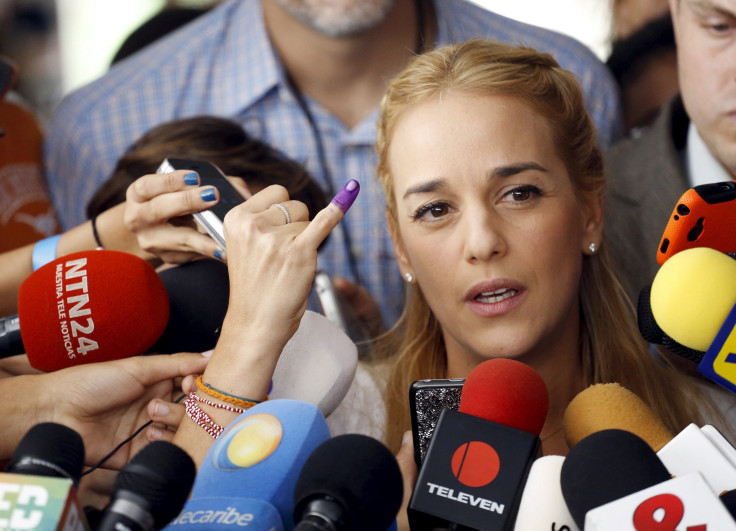
Venezuela United Socialist Party of Venezuela (PSUV) lost its majority in the National Assembly in Sunday’s midterm elections to the big tent Democratic Unity coalition, losing it’s grandslam grip on power for the first time since 1999. An electoral spokesperson announced that while 22 parliamentary seats were too close to call, the opposition coalition had clearly won at least 99 seats to PSUV’s 46. Winning just a handful of those remaining races could lead to a supermajority in the assembly, Venezuela’s parliament, granting them additional powers.
“The constitution and democracy have triumphed, we recognize and accept these results,” said President Maduro, according to TeleSur. “A perfect electoral system, without a doubt is one the most marvelous creations of these 16 years of revolution, of transformations and the creation of something new.”
Imperfect, But Democratic Election
Sunday’s election was far from perfect. The government reported dozens of instances election-related misconduct, and pulled the elections of one electoral observer working with Democratic Unity, former Bolivian President Jorge Quiroga over public comments he made as voting was in progress.
There were also reports on social media of pro-Chavismo tents locate too close to polling stations, arbitrarily late or early openings at polling stations, and other complaints reported by the press and on social media. None of the incidents have been used by political parties to question the outcome of the election. Turnout was a stunning 74 percent.
Maduro, like his predecessor has been called a dictator with regularity in the U.S. press, though his governing style might be more accurately described as a Democratic caudillo. While Maduro’s government has a poor human rights record, his acceptance of Sunday’s election results are a reminder that his is not a purely totalitarian regime.
Rare Victory For The Diaspora
Venezuelan expats in the U.S. celebrated the significant opposition victory which marks a major blow to the left’s base of power. Socialist party policies have not been friendly to the upper classes in Venezuela, who have largely taken their talents and their capital abroad.
The Democratic Unity victory may put the brakes on anti-capitalist policies that have driven them out. Maduro’s PSUV still control the Presidency and a large majority of the municipal leadership positions. There aren’t a lot of cities on Venezuela without a Chavista mayor.
It’s too early to tell how the largely anti-Socialist diaspora Venezuelans will respond. One airline company has been advertising direct flights to Caracas from New York following the election, a bet that in the wake of the opposition’s victory, Venezuelans in the U.S. might return home a bit more often.
© 2025 Latin Times. All rights reserved. Do not reproduce without permission.



